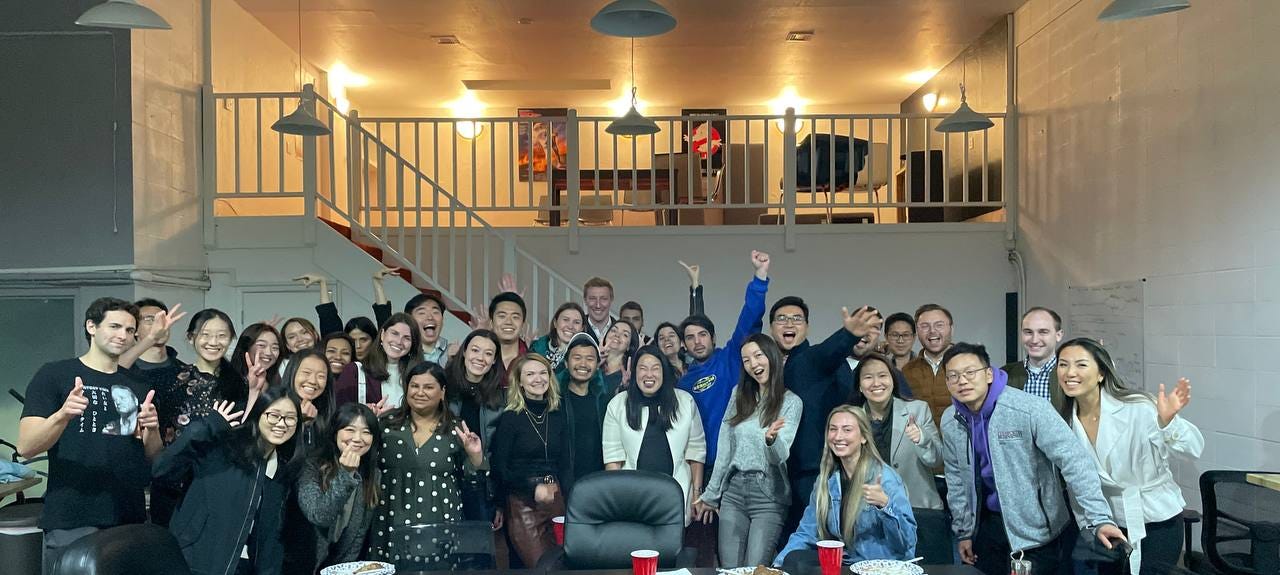Debby Soo, OpenTable
Dreaming big
We had an honest conversation with Debby Soo, CEO of OpenTable, about life and work, her shortcomings and successes, her moments of triumph, and her moments of doubt. It was a candidly human conversation.
About her life before Opentable and her ambition…
Growing up, Debbie did not know what she wanted to be/do, and when people asked, she used to say she wanted to become the CEO of GAP to have an answer.
Debbie knew she wanted to pursue the accumulation of power, wealth, and choice—to influence the people in her team. She also wanted to make an impact: Building something outside her family that will remain after the end of her life has always been her North Star.
Debbie studied her undergrad at Stanford, and being admitted felt like an acknowledgment of her capabilities. She says that it was heartbreaking being rejected by GSB for her MBA: for the first time, she thought she had tried her best and not hit the mark, and it was hard because she felt she deserved it. That experience was important because it gave her the sense that she had something to prove and the strength to aspire to end up speaking to a group of GSBers from which the blog originated!
About being a CEO…
Debbie loves being a CEO. You feel you are in a position where you can influence the lives of your employees and their families, and this is a huge responsibility. A CEO takes care of the company to take care of its employees. Also, it is incredible to see employees developing and growing, even when they decide to leave for another opportunity.
On the other hand, being a CEO is very lonely - You cannot share your doubts; it is a constant pressure that never goes away.
Nobody tells you how hard it is in reality to be a CEO. We all know it is supposed to be hard because anything worth getting is hard, but it is tremendously challenging to balance your husband, your kids, your health, your company, and being an "engaged everything" at the same time (mum, wife, leader, person)
Once you are a CEO, you will always be a CEO; there is no way back. Marissa Mayer is a clear example: She got that CEO role through a big jump, and from now on, she will always be, at least, a CEO.
Debbie was covering Kayak APAC, while most of the business was in North America. The focus was not on APAC. When Google launched Google places, most of the team at Kayak North America left for Google, and she was requested to cover this part of the world; that was the way she ultimately became the CCO.
About being Opentable's CEO...
Debbie did not see a risky move to start as OpenTable's CEO during COVID; there was a significant upside when the country began to recover.
At OpenTable, they were strict with no-shows because they disrupted the restaurant's revenue on that day; this is why they penalized so heavily people who did not show.
Her recommendation is never to waste a good crisis; COVID has allowed OpenTable to push aggressively.
About the workplace...
To influence and convince people, use data to show reasoning of the best path forward for you and come prepared for the discussion: do your homework, and be ready to face naysayers. People follow you because they like you.
The relevance of the culture. I have been in places where I was advised to drink green tea over diet coke and avoid specific no-go colors in my clothing. Find your environment to bring your entire self to your work. One cannot spend that much energy hiding who we are.
Inheriting a team is way more difficult than building yours.
You need mentors and sponsors; you need people who provide guidance and others who are powerful enough to sponsor you.
Organizer: Georgi Koreli
Editor: Jacky Lin
Host: Will Agramonte
Contributors: Alba Rubio Rodriguez, Anna Vladymyrska

